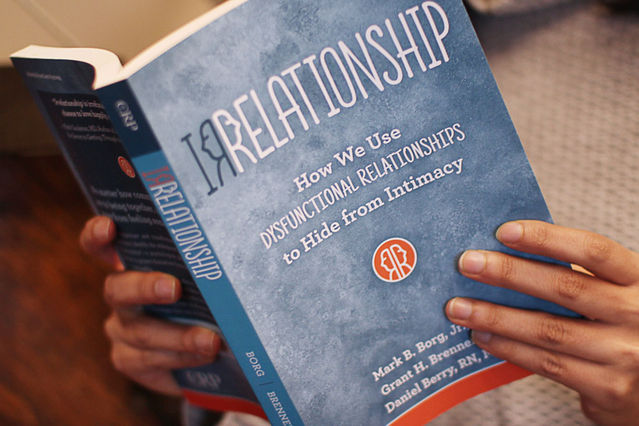Relationships
Desperately Seeking a False Sense of Security
In irrelationship, nothing is scarier than genuine commitment
Posted August 22, 2016

"I’ve always been kinda’ attracted to dangerous places,” James reflected. "Somehow I always felt oddly comfortable, content, if I was confronting some kind of danger — even hazardous conditions when I’m driving. When I walked past bars after I first quit drinking, part of me still felt that inside a bar was where I was really safe.
Then I met Joni. From our first conversation, I knew down deep that this was different, like ‘for the rest of my life’ different. So at first I did my best not to think about it and chased other women instead. The challenge of chasing women was the only thing that I was comfortable with.”
James’ experience is a textbook example of what the authors’ work is all about. The prospect of a stable, committed relationship excites him on some level, but it makes him freak out even more. What is that all about?
Stability and commitment add up to relationship sanity, which means openness to exactly what one’s partners has to offer instead of laying down unspoken rules that create a choreographed routine of rigid, unvarying steps with one another (artificial security). Relationship sanity is the opposite of irrelationship, it is being open to what your partner brings to the table, and is a necessary condition for intimacy—intimacy that includes both emotional investment in one other and vulnerability to each other.
"A lot of people thought my first marriage looked perfect from the outside,” James reminisced. “Smart kids, supportive friends, both families 100% behind us; and we had pretty much acquired everything material we wanted soon after we got married. So what went wrong? It didn’t crash and burn: it just started looking drab and mundane and I lost interest. I wouldn’t have admitted this to anyone — maybe not even to myself — but the whole time we were married — and even before — I was keeping my eyes open for a way out — something dangerous that would push the envelope and keep my juices pumped 24/7.”
One of the most common misperceptions about long-term relationships is that when shared life gives way to routine, we’re well on our way to boredom. The fun is over.
Usually, however, this turns out to be a defense against openness to exploring with one another what we’re really like because the routineness of the everyday isn’t a wall: it’s a door that we may not want to open. But if intimacy is to grow, opening and walking through is the beginning of the real adventure. And that’s where our hearts are really put at risk, because that’s where we move to the next level of seeing, being seen, and of talking about how we feel about it
James continued, “I finally came to realize I was always chasing dead ends. It left me disappointed every time, but I couldn’t stop myself. Then, when I met Joni, I knew almost right away that she wasn’t interested in the rules of my game: she was interested in me — for me! I didn’t have to be entertaining or cool; in fact, I didn’t even have to be what I thought was sexy. She was interested in whatever my life was made of, no matter how ordinary, or even how lame.
Nobody ever told me that love was this thing that always just held you up even when you don’t feel any heat or thrill. But it turns out that love is why you’re standing at the sink doing dishes together, or even not together; or it’s how you know you can act crabby to each other when the baby needs changing again; of you can even fight about credit card bills knowing that disagreeing doesn’t mean 'game over.' Love turns out to be all that and being able to talk about all that, no matter how rotten I feel about me or her or about both of us. I — I just never knew that!”
To order our book, click here. Or for a free e-book sample, here.
Join our mailing list: http://tinyurl.com/IrrelationshipSignUp.
Visit our website: irrelationship.com
Follow us on twitter: @irrelation
Like us on Facebook: fb.com/theirrelationshipgroup.
Read our PT blog: psychologytoday.com/blog/irrelationship.
Add us to your RSS feed: psychologytoday.com/blog/irrelationship/feed

The Irrelationship Blog Post ("Our Blog Post") is not intended to be a substitute for professional advice. We will not be liable for any loss or damage caused by your reliance on information obtained through Our Blog Post. Please seek the advice of professionals, as appropriate, regarding the evaluation of any specific information, opinion, advice or other content. We are not responsible and will not be held liable for third party comments on Our Blog Post. Any user comment on Our Blog Post that in our sole discretion restricts or inhibits any other user from using or enjoying Our Blog Post is prohibited and may be reported to Sussex Publisher/Psychology Today. The Irrelationship Group, LLC. All rights reserved.


